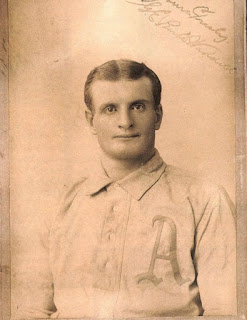Remarkable tale of Rube Waddell, an American baseball player
This is the remarkable tale of Rube Waddell, an American baseball player from the early 1900s, whose life story is nothing short of astounding.
During baseball games, Waddell had a peculiar habit of vanishing to chase fire trucks, and his easily distracted nature became evident when opposing fans tempted him with puppies, causing him to abandon the game and play with them.
Notably, in 1903, Waddell had a whirlwind year that saw him transition from sleeping in a firehouse in Camden, New Jersey, to tending bar in a saloon in Wheeling, West Virginia.
Remarkably, in between those events, he achieved great success as a pitcher, winning 22 games for the Philadelphia Athletics.
His adventures continued as he toured the nation in a melodrama called "The Stain of Guilt,"
where he impressed audiences by improvising his lines in every show, earning critical acclaim.
Waddell's antics didn't end there. In 1905, he shared a room with fellow baseball player Ossee Schreckengost, who demanded a clause in Waddell's contract that forbade him from eating crackers in bed.
This odd request stemmed from the common practice of players sharing the same bed in hotel rooms while on the road. Additionally, that same year, Waddell missed the World Series due to a shoulder injury he sustained while trying to destroy a straw hat.
Despite his unusual behavior, Waddell's talent as a pitcher was undeniable. He even achieved the impressive feat of winning a Triple Crown in pitching.
If the Cy Young award had existed during his time, he likely would have secured the honor over Cy Young himself.
Sadly, Rube Waddell's life was cut short when he passed away from tuberculosis at the age of 37, on April Fool's Day in 1914.
His legacy remains, and his astonishing journey continues to bewilder and captivate baseball enthusiasts to this day.




Comments
Post a Comment